Dettagli
Anno di pubblicazione
1790
Autore
Brissot De Warville Jacques-Pierre
Editori
De l'imprimerie de L. Potier de Lille
Soggetto
Livres Anciens (1455-1820)|Histoire
Descrizione
- De l'imprimerie de L. Potier de Lille, Paris 1790, in-8 (12x19,3cm), 22 pp., relié. - Adresse à l'Assemblée nationale, pour l'abolition de la traite des Noirs De l'imprimerie de L. Potier de Lille Paris 1790 | 8vo (12 x 19.3 cm) bradel binding First edition of one of the most important revolutionary publications against the African slave trade and first manifesto of the Société des amis des Noirs, founded in February 1788 by Jacques-Pierre Brissot, Étienne Clavière and Mirabeau, just nine months after the London Society for Effecting the Abolition of the Slave Trade, which served as their model. Full Bradel binding with motif boards, spine title label, all edges marbled, binding signed Boichot. It was in London that Brissot in exile and under the threat of a "lettre de cachet" for his anti-monarchical writings, met Thomas Clarkson at the beginning of this first political association for the rights of Blacks born of the scandal caused by the massacre of 142 slaves on the Zong slave ship. Even before the success of the French Revolution and the Déclaration des Droits de l'Homme, Brissot decides to lead this necessary but highly controversial fight for the universality of human rights. Inaugurated by Bartolomé de Las Casas and La Boétie then led by Anglosaxon Quakers and French Enlightenment philosophers, this fight for the recognition of fundamental human rights was initially confronted with the economic logic of a West that builds its power and wealth on triangular trade. The Société des amis des Noirs like its English alter ego decides therefore to conduct the fight in two stages, the first of which must be the abolition of the slave trade. This is the express idea of this plea to the Assemblée Nationale which as Brissot writes comes from "engraving on an immortal monument that all men are born and remain free and equal in rights". Although Brissot de Warville defended himself from any desire to abolish slavery ("The immediate emancipation of the blacks would [.] be a fatal operation for the colonies"), his speech was one of the most beautiful humanist appeals of the time. Thanks to an oratory rhetoric worthy of the greatest revolutionaries, the Girondin transforms his pragmatic demonstration of the economic uselessness of the slave trade into an ethical and philosophical manifesto of the founding principles of the French Revolution: "You have restored to the French people these rights that despotism had for so long despoiled. You have restored them to these courageous islanders in Corsica, thrown into slavery under the veil of charity. You have broken the chains of feudalism that still degraded a good number of our fellow citizens; you have announced the destruction of all the stigmatizing distinctions that religious or political prejudices introduced into the great family of humankind. Men whose cause we defend do not have the same high claims, although, citizens of the same Empire and men like us, they have the same rights as us. We are not asking you to restore to French blacks those political rights which alone, nevertheless, attest to and maintain the dignity of man; we are not even asking for their liberty. [.] No, never has such an idea entered into our minds. [.] we ask only that one cease butchering thousands of blacks regularly every year in order to take hundreds of captives; we ask that henceforth cease the prostitution, the profaning of the French name, used to authorize these thefts, these atrocious murders; we demand in a word the abolition of the slave trade, and we beg you to take promptly into consideration this important subject." Brissot while rejecting suspicions of intelligence with the English enemy to ruin France - and we know what it will cost him to be accused of Royalism by Robespierre -, exposes the condition of slaves from their capture to their exploitation, offering a powerful analysis of the causes and consequences of this inhuman treatment and its irreducible logic: "Thus thos
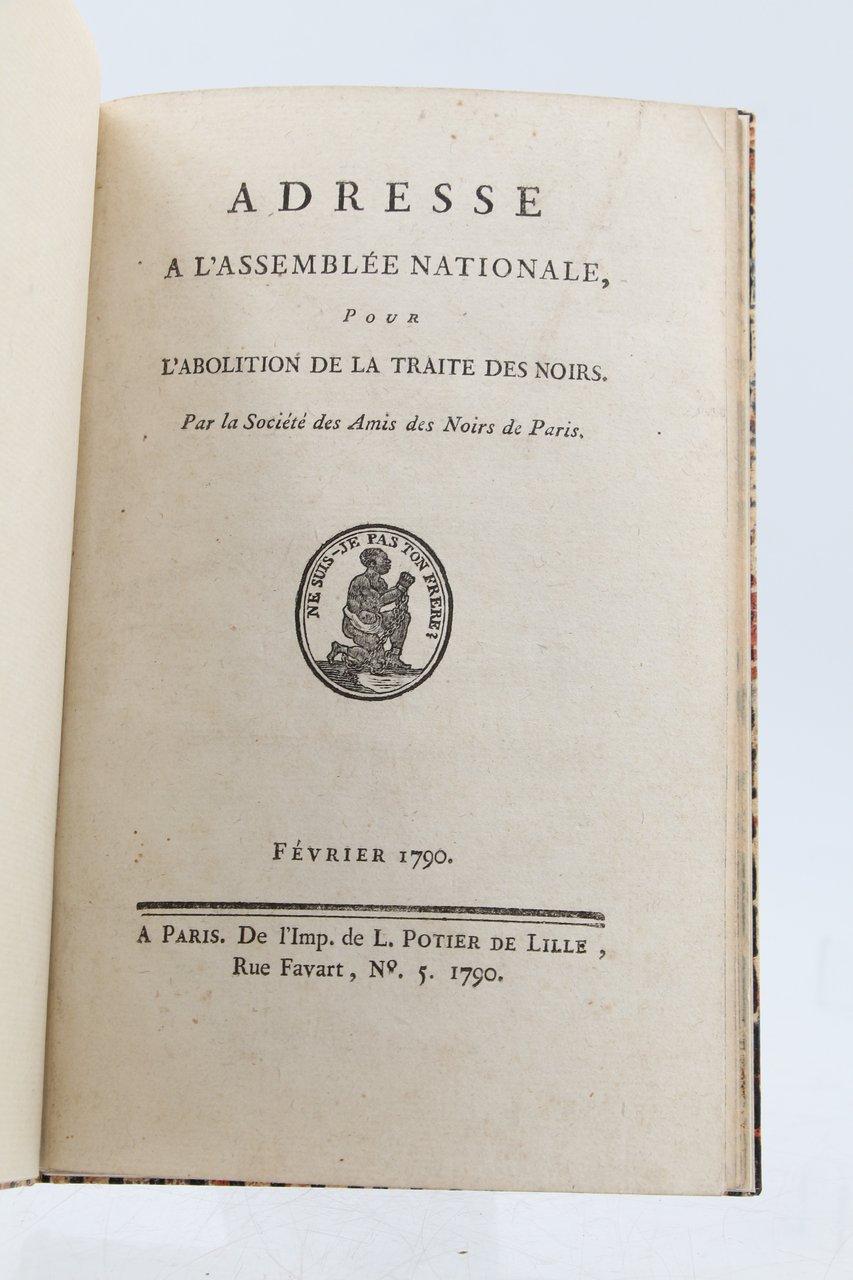
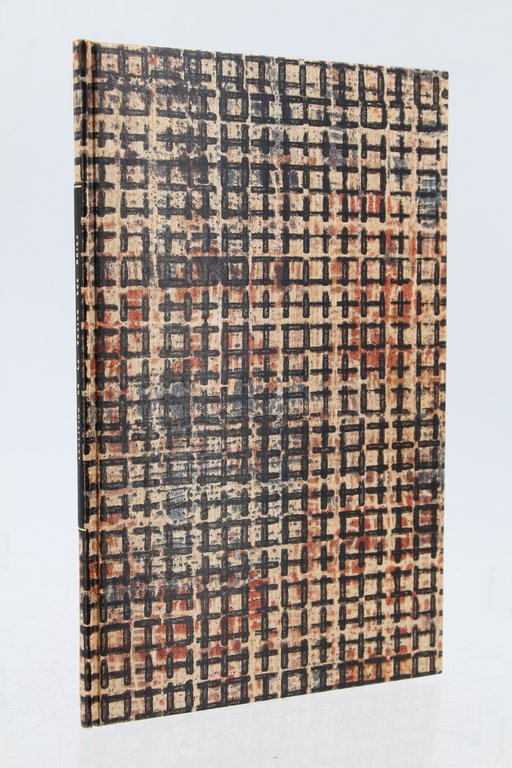
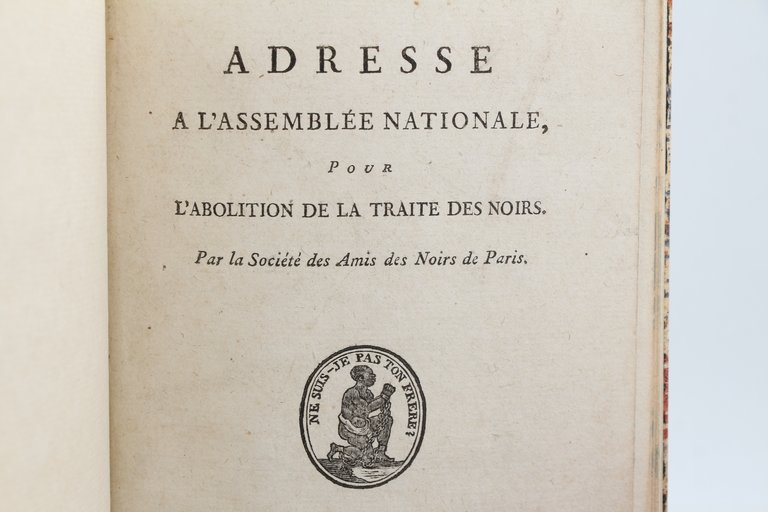
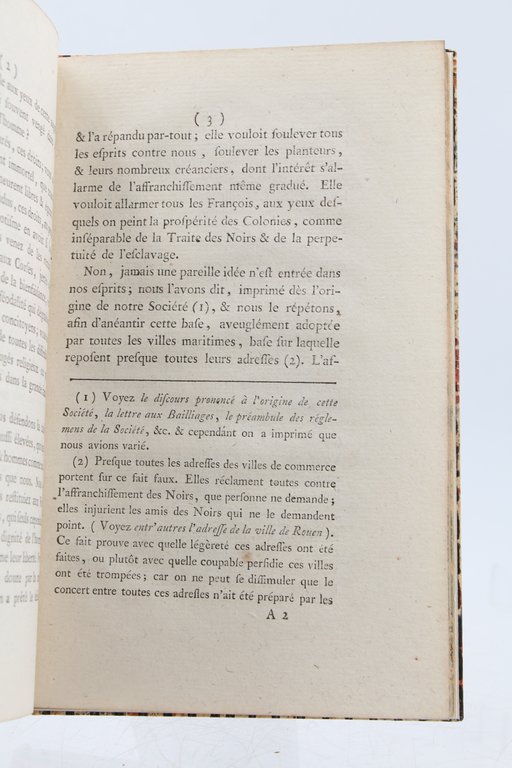
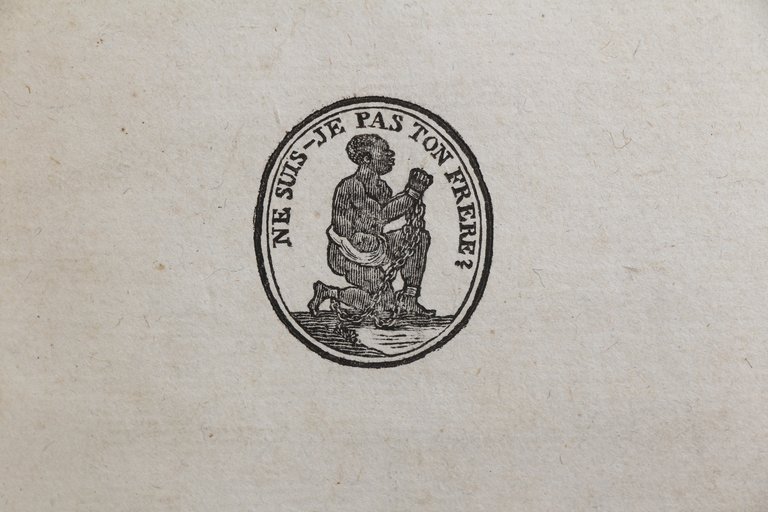
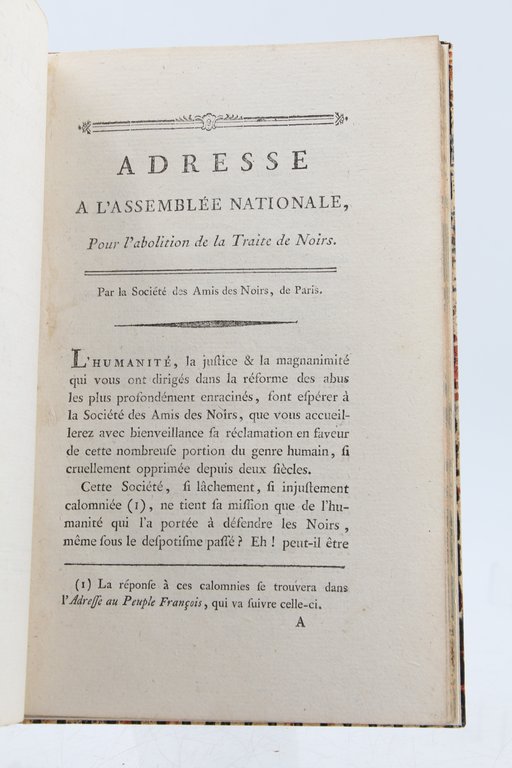
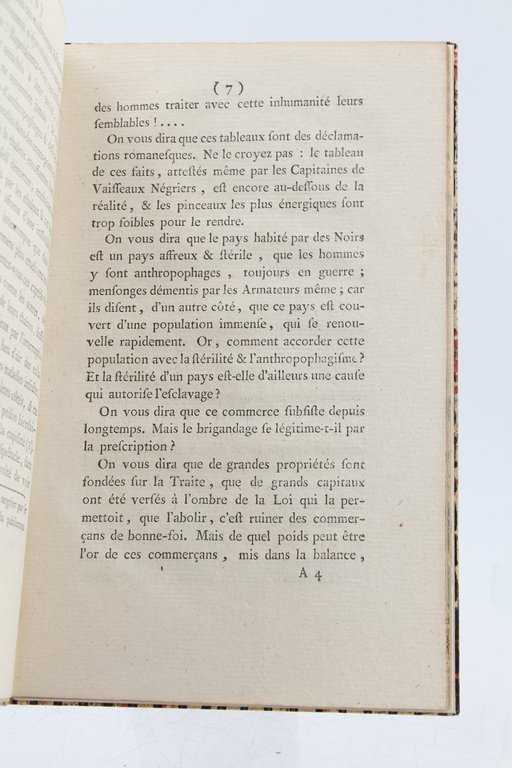
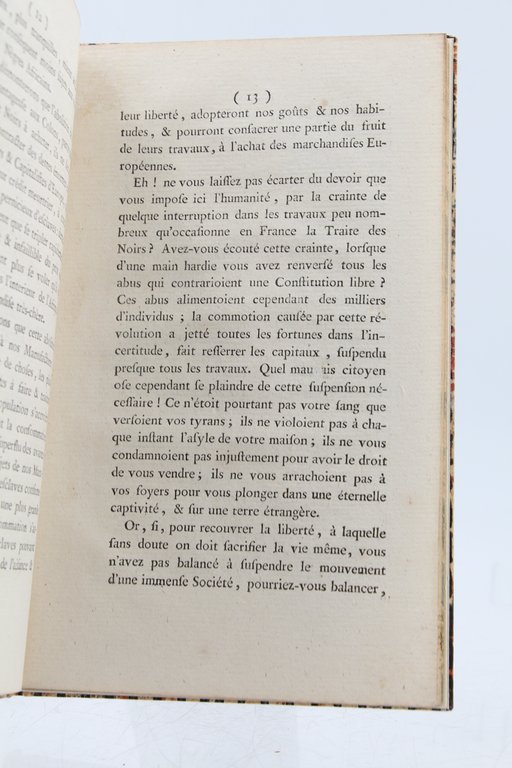
Scopri come utilizzare
Scopri come utilizzare

